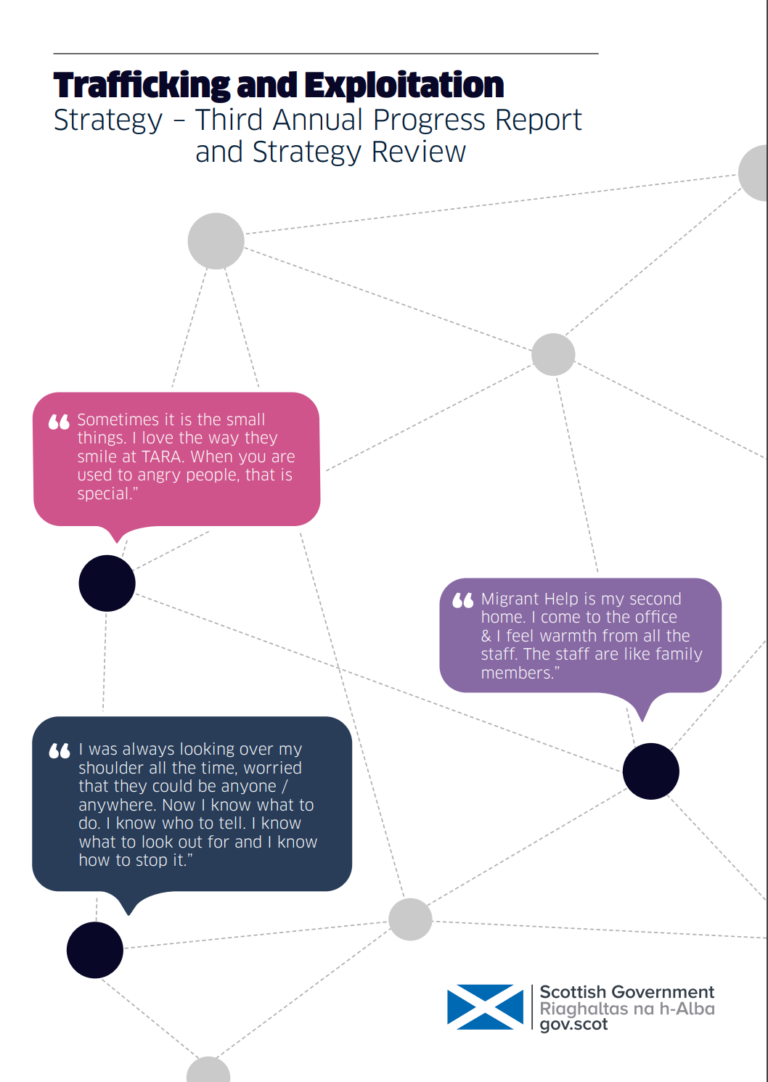The Human Trafficking and Exploitation (Scotland) Act 2015 (“the Act”) introduced new offences, gave police and prosecutors additional powers to tackle traffickers, raised the maximum penalty for trafficking to life imprisonment, and placed support for victims on a statutory basis. It also required that Scottish Ministers develop and publish a Trafficking and Exploitation Strategy (“the Strategy”), and this was done in May 2017.
The Strategy was developed through a process of co-production. Extensive consultation with partners, stakeholder organisations and the general public was undertaken, including a formal written consultation and engagement events across the country. A series of focus groups were held with survivors of human trafficking to ensure that their voices were reflected, and that they had an opportunity to influence the policies in the Strategy.

